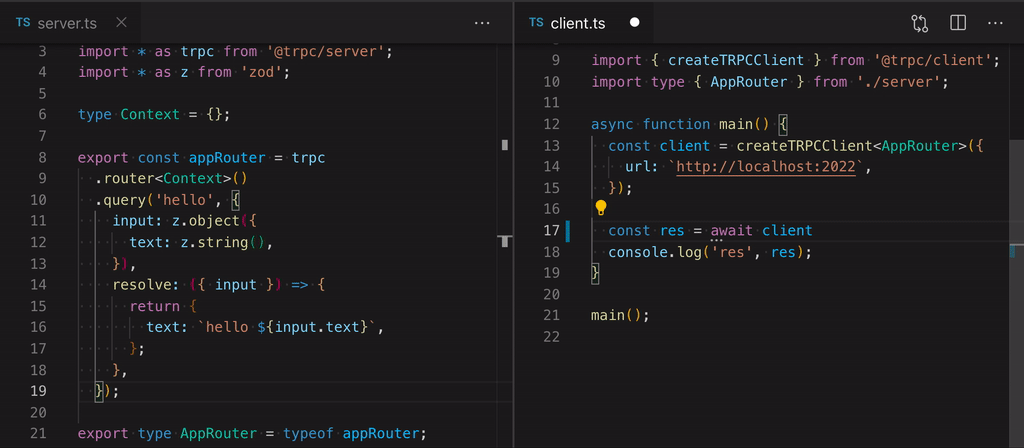Matthew Hodgson (technical co-founder) joined us to talk about Matrix - an open source project and open standard for secure, decentralized, real-time communication. It’s open source, it’s decentralized, it’s end-to-end-encrypted, and it’s also self-sovereign. Matrix also provides a bridge feature to bridge existing platforms and communication silos into a global open matrix of communication. A recent big win for Matrix was Mozilla’s announcement of switching off its IRC network that it had been using for 22 years and now uses Matrix instead.
Matthew Hodgson: By far the biggest thing that we can do right now is to fix the first-time user experience in Riot… And it’s tantalizingly close. If we can go and get the UX, so that people will try using it rather than Slack, and think “Oh, this is actually a bit better”, then… Ignore all of the open source, all the decentralization, all of that stuff… Just from a pure, pragmatic user perspective, you’ve gotta have that. That’s more than anything else what I’d like to have happen.
Secondarily, we’d need to fix the reputation and abuse challenges. We’ve made some good work on that. We have the concept of shared blocklists, so that if there are abusive folks, you can choose to ban them from your room or server or community or user, and then kind of pool that information together… A bit like email blacklists, but hopefully a little bit more nuanced. That is improving things a bit, but it needs to be a lot more nuanced if it’s gonna solve the kind of grayscale things. If you ban somebody for spamming a room, it’s pretty concrete. But if you just happen to want to dial down the NSFW content in a room, that’s getting a bit more gray as to what somebody considers safe for work etc. So we need to have that subtlety to support that.
[01:16:00.20] And finally, end-to-end encryption has been an epic to make work. We are the only decentralized real-time encrypted system that I know with end-to-end encryption, and it turns out people don’t tend to do that. It’s really hard to get the edge cases to work, and people are very unforgiving for random messages that don’t decrypt, because there was a race between sending the keys, or one of the servers went down in the middle, or there was a netsplit and the server who sent you the message didn’t know you were even in the room, so of course it didn’t encrypt it for you. From a user perspective, if you don’t get the message - that is, you know, the one thing you had to get right.
So we’ve spent so much time trying to get that right and turn it on by default. We got a lot of flack in the privacy space for not having it on by default, particularly as WhatsApp, and Wire and Signal are obviously all encrypted by default these days… So we aimed to get it on for the end of January. It slipped. The best quote I heard is ten days from now is the next mission… But we’re still working through that work, so I really hope a year from now that’s old history, and everybody is used to everything being end-to-end encrypted.
Other than that, on the commercial side obviously more governments and big players adopting it to the extent that it becomes the default way to do chat in an industry, rather than email or phone calls, or jumping on Slack and paying huge amounts of money, would be a good outcome.
I’ve already mentioned France and Germany, the U.S. is also using Matrix in production in various public sector environments… Unfortunately we can’t really talk about them, but some of them are really, really interesting; places where the decentralization is super-useful. In fact, what we can talk about is the Texas Department of Emergency Management and Public Safety, where they previously were using WhatsApp for coordination in the field, and they’re very extensively using Matrix now to coordinate in a disaster scenario, working that domain.
It would be great if open source projects didn’t use a proprietary thing like Slack, they’d instead use Matrix… And if governments did it too, then between the geeks that FOSDEM and the public sector folk, or whatever the open source conference equivalent is for the public sector… They actually do have open government conferences, which as pretty interesting, as all the people compare how to build open public infrastructure… Then perhaps the rest of the world would meet in between, and it would just keep growing.
Oh, the other thing I’d wave a magic wand is to migrate to Dendrite and kill off our Python codebase and move to Go, because the scalability nightmare we have on Python… Not Python’s fault, but we just built it as – it doesn’t scale horizontally, whereas the Go thing is very horizontally scalable, and is shamelessly inspired by some of our high-volume competition in the proprietary space. That would be great because we waste far too much time debugging Python, when I would just like it to be efficient.








